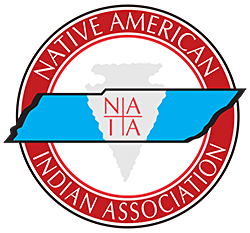HOW CAN I TRACE MY ANCESTRY?
Unfortunately, we do not assist in tracing your Native ancestry. Please review this guide provided by the U.S. Department of Interiors on ways to trace your family ancestry. The Bureau of Indian Affairs does not maintain comprehensive lists of persons possessing Indian Blood. The burden of proof of Indian ancestry rests with the individual claiming possession of Native American Indian blood.
WHO CAN JOIN NAIA MEMBERSHIP?
Anyone, Native or non-Native, can join our membership by an annual donation of $10 or become a lifetime member with a one time $500 donation. We have membership all around the world.
WHAT TYPES OF SERVICES DOES NAIA PROVIDE?
NAIA has two separate offices that provide different types of services for the Native American Indian population of Tennessee.
- Our Main Office, (615)232-9179, provides essential services on a case by case basis upon approval from the Board.
- Our WIOA Office, (877) 437-0756, provides a variety of services geared towards job training and education programs. We can provide job placement, job training, classroom training, student support, and education assistance. Please contact this office for more information.
HOW DO I QUALIFY FOR SERVICES?
In order to determine your eligibility for any services we provide, you must be prepared to show documentation of your Native American Indian identification and complete our intake form. Applicants are reviewed on a case by case basis. Please contact the NAIA main office or the WIOA office for more information.
I TOOK A DNA TEST, AND IT SHOWS I’M NATIVE AMERICAN. DO I QUALIFY FOR SERVICES FROM NAIA?
The Native American Indian Association provides essential services to Native American Indians of Tennessee who have state or federal recognition from their Tribe. This documentation can be as follows:
- Certificate Degree of Indian Blood (CDIB) Card OR
- Tribal Identification Card from a federal/state recognized Tribe OR
- Tribal Enrollment Letter from a federal/state recognized Tribe
WHICH TERM IS PREFERRED, AMERICAN INDIAN, NATIVE AMERICAN OR INDIGENOUS?
“American Indian” specifically refers to Indigenous people of the lower 48 states, while “Native American” encompasses Alaska Natives and Native Hawaiians. “Indigenous” is more internationally favored and refers to people worldwide with ancestral ties to their homelands.
WHAT IS AN INDIAN TRIBE?
Originally, a Native American Indian tribe was defined as a group of individuals connected by familial bonds, organized into a cohesive social, political, and religious structure, inhabiting a specific territory, and sharing a common language or dialect. However, for such a group to be acknowledged as a tribe by the U.S. government, it must receive official recognition.
WHAT DOES THE TERM “FEDERALLY RECOGNIZED” MEAN?
Tribes are officially “recognized” by the federal government only if they have a legal relationship with the U.S. government, established through binding treaties, congressional acts, executive orders, among other means. This “recognition” signifies a formal legal relationship between the Tribe and the United States. Presently, there are over 550 tribes across the United States that have achieved federal recognition, which includes around 200 village groups in Alaska. Nonetheless, numerous tribes are still engaged in the complex and time-consuming journey to obtain federal recognition.
WHAT TRIBES LIVE IN TN? WHAT TRIBES USED TO LIVE IN TN?
Tennessee does not have any federal or state recognized Tribes. The five original Tribes to Tennessee were the Choctaw, Cherokee, Creek (Muscogee), Chickasaw, and Seminole. While these tribes historically inhabited Tennessee, today, individuals and descendants from these and other Native American tribes live throughout the state. However, without federal or state-recognized tribes, Native Americans in Tennessee may organize through community groups, associations, and cultural organizations to preserve and promote their heritage.
HOW MANY TRIBES ARE THERE IN THE U.S.?
There are 574 federally recognized American Indian and Alaskan Native tribes and villages. Additionally, there are more than 60 state recognized tribes, which allows for a degree of self-determination at the state level but not at the federal level.

